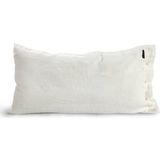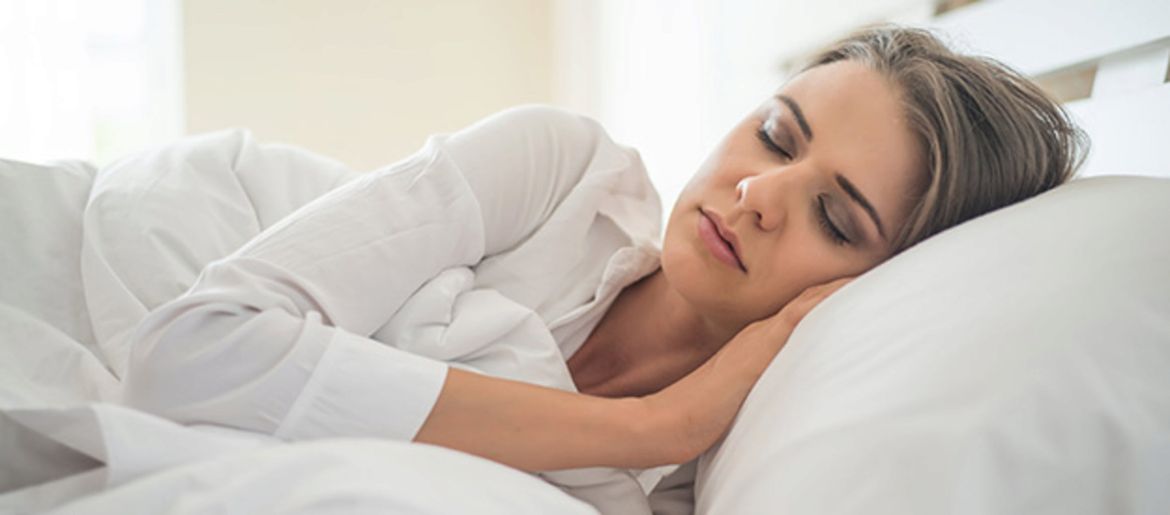Tips for a Perfect Night's Sleep
Let's start by getting straight to the point: If you are serious about getting a good night's sleep, your bedroom needs to be a calming place of refuge. It is said that we spend about a third of our lives sleeping. Meaning that at age 75, we will have spent a total of 25 years sleeping! We should therefore keep this in mind and make the most of it. Our health, both physical and mental, will thank us for it.
Getting a good night's rest is not as straighforward as it appears to be at first. The University of Warwick estimates that hundreds of millions of adults suffer from sleep-related problems. This can be traced to a variety of reasons. Although sleeping is an unavoidable daily requirement of life, we often have the feeling that time spent sleeping is time being wasted. That is really unfortunate and can be changed. When done properly, sleeping can feel like an indulgent and luxurious way to pass the time.
There are many ways we can improve our chances of falling asleep and staying asleep until we wake up feeling refreshed. Simple ways to achieve this are to incorporate enough exercise during the day, pay attention to what and when we eat and drink (especially in the couple of hours before bedtime) and how we furnish the bedroom.
Most of all, how we design our bedroom is the deciding factor in getting regular, restful sleep. Creating an environment that encourages falling asleep and staying asleep is an important component of sleep hygiene and will result in restful, refreshing sleep night after night.
This entails creating surroundings that are relaxing physically as well as visually by choosing the right furniture. The lighting, sounds and smells are important factors as well. Taking all this into consideration while furnishing your bedroom will help you cultivate the right atmosphere for perfect sleep. Let's examine this a little more closely.
How to improve sleep quality
If you can't get the kind of sleep that you long for, perhaps it's time to reassess the ambience in your bedroom. Take for example, the colour scheme, the lighting, the mattress and the bed linens to start with. You can't add any hours to the day, but you can make the most of the time you do have during the day when you get better sleep. Working on the ambience of your bedroom is a step in the right direction. Here are some ideas to help you get started:
The furnishings
Interior architecture is a wide-ranging field but one of its core components is establishing the look and feel of your home. For your bedroom, choose a style that not only reflects your personality but is calming and encourages you to rest. Your bedroom should be inviting, a place of refuge where you can relax and feel comfortable.
Warm, appealing colours
Walls, floors, furniture and bed linens collectively form the colour scheme of your bedroom. It is important that you choose colours that made you feel good when you are about to go to sleep. For most people, these are warm, soft colours but you should of course a colour that speaks to you. Also remember that every colour has a certain effect.
In the bedroom it boils down to either warm or cool colours. If you are looking for a cooling and peaceful effect choose blue which is an extremely calming shade. According to a survey, people who sleep in blue rooms sleep best. On the other end of the spectrum is the colour lavender which has the least calming effect.
Reduce clutter
Visual clutter can induce stress which is known to affect the quality of sleep. Clutter can also lead to the feeling of having left too many lose ends untied, which can cause anxiety and restlessness. This is turn makes it harder to calm down and relax when you are trying to fall asleep.
Only have things and objects in your bedroom that really belong there and banish everything else to another room. The room will feel more spacious and tidy leading to a sense of security and lightness.
Practical tips to encourage sleep
How you furnish your bedroom has a direct impact on how well you sleep. It's all about creating an atmosphere of total relaxation for body and spirit with as few distractions as possible. The bed linens and mattress are crucial elements.
Mattress and bed linens
The bed is obviously the heart and soul of a bedroom. Choose a well-made mattress that matches your requirements for firmness. It should offer optimum support and relieve stress points caused by body weight and position during sleep. A new mattress can be an expensive investment but studies have shown that a good mattress can improve sleep while relieving stress and backaches.
Besides the mattress, your pillows, bedsheets and blankets also play an important role in making your bed inviting and comfortable. Pillows can prevent neck pain by providing support to your head, neck and back while you sleep. Bed linens and blankets help regulate your body temperature and should be cosy and soft. Regularly changing your bed linens ensures that your bed always feels fresh and prevents the buildup of dust and allergens.
Lighting
Light is the most powerful factor that affects our circadian rhythm, the part of our biological clock that regulates sleep. When it's time to go to bed, you should try to keep your bedroom as dark as possible to provide maximum support to your circadian rhythm.
Choosing a lamp that casts a warm, cosy glow in your bedroom is critical because a dimly and gently lit room makes falling asleep much easier. A light source with a low colour temperature and low wattage makes you feel sleepy and helps you fall asleep.
If your room is lit up at night by outdoor light sources then window treatments such as curtains or blinds will help darken your room. The darker the room, the better you will sleep. Alternatively you can wear an eye mask.
Exposure to screens
An important part of limiting your exposure to light at bedtime is avoiding the use of electronic devices such as smartphones, tablets and TV's in your bedroom. Watching TV in bed before sleeping has a negative effect on the quality of sleep.
Blue light that is typically emitted from screens perks you up and disturbs the circadian rhythm. If you must have such a device in your bedroom then avoid using it for an hour before going to sleep and keep it out of arm's reach all night.
Temperature
Acoording to experts, our body temperature drops when we are asleep. This slight decrease in body temperature encourages sleep. If your bedroom is uncomfortably warm or cold it is highly likely that your sleep will be interrupted. Experts agree that the ideal temperature for good sleep lies between 18 and 20 °C. A room that is too warm is especially bad for undisturbed sleep and keeping your bedroom cool is therefore highly recommended.
If you do not have a thermostat to regulate the temperature in your bedroom, use a fan or open a window depending on the season.
Smart alarms
A smart alarm keeps track of the phases of your sleep and wakes you up when you are sleeping lightly. Being woken up during the phase where you are sleeping lightly makes you feel like you've woken up naturally - without an alarm - and is the most refreshing way to wake up.
Sounds
Sounds are often the cause of disturbed sleep leading to a lower sense of wellbeing in general. If you have no control over external sounds, then having a device that makes white noise can be of great help. White noise is soothing and prevents you from hearing other intrusive sounds and promotes better sleep. Nowadays there are smart white noise devices that can detect external sounds and continuously adjust themselves such that the user remains completely unaware.
Another option is to put up speakers and play relaxing music. There are several apps that also serve this purpose.
Smells
A bedroom that smells right can be a huge bonus. While smells do not usually wake us up, the right aromas can help establish a relaxing and restful ambience in the bedroom. Aromathrapy with essential oils such as lavender oil have been proven to promote relaxation thereby leading to better sleep.
Air quality
The air quality in your home is of enormous importance to your health and not just for a good night's sleep. Research has shown that good ventilation is closely related to good sleep. Good ventilation also prevents buildup of mould which is bad for health and leads to sleeplessness and excessive fatigue during waking hours.
And there you have it! Our tips for a perfect night's sleep. On this note we leave you and wish you many, many nights of refreshing, restful sleep!
Related products
-

Seiferei Pillow Mist, 50 ml
- Sustainable
- Made of natural raw materials
- Delicate scent
£15.00 (£300.00 / l)Delivery by February 13
-
 5.0 (2)
5.0 (2)Lovely Linen Pillowcase LOVELY 40 x 80, Off-White
-5%- Off-White
- Natural Beige
- Light Grey
- Jeep Green
- Midnight Blue
- 100% linen
- Suitable for the dryer
- With metal snaps studs
£43.71 £46.00Delivery by February 13
Magazine Articles:
-
Great Britain: Free standard delivery from £69.90
-
Free
returns -
We operate in a
climate-conscious manner. More than 11.250 products

